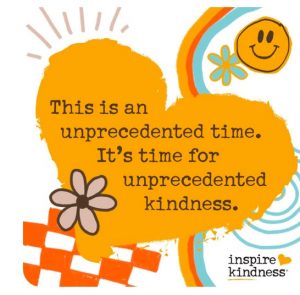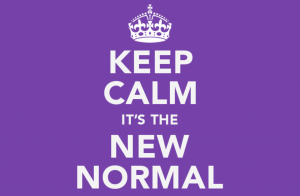I don’t know about you, but I definitely need to recharge and top up my batteries and I definitely am missing being with friends, family and loved ones.
I MISS HUGS. I MISS THE PHYSICAL TOUCH OF OTHERS.
I know I’m not the only one.
As we get into the eighth month of this pandemic, and are entering into another enforced lockdown, we’re all feeling the strain. We’ve been amazingly resourceful. I think we’ve been amazing to get this far and not gone completely nuts! It’s safe to say that almost everyone I come into contact with right now is running on empty. We’ve just run out of juice and that’s to be expected when we’ve had so long in isolation with all the COVID-19 stuff happening all around us.
I thought I’d use this Meta blog, to remind you of the POWER OF KINDNESS, how kindness is a gift that keeps on giving.
During this pandemic we’ve seen the best of behaviours in people and we’ve seen the worst. I think many of us have just run out of positivity or optimism and now, more than ever, we need something that helps us feel good, helps us feel better than we are feeling just now.
There is no better FEEL GOOD thing to do, than to BE KIND. Kindness spreads, it’s infectious (in a good way) and right now I think it’s something that we can all be doing more of. Kindness not only benefits those who we are kind to (it literally increases the happy chemicals in their body and brain), but also benefits us too (we get a good chemical hit too!). And here’s the nuts thing, it also benefits people who observe us giving that kindness to another.
So surely that’s the definition of a GIFT that keeps on GIVING?
Three gifts in one, a triple whammy from a single act of kindness – BOOM – *drops the mic*
The other thing about being kind is that it’s really, really easy. It doesn’t have to be a grand gesture; it doesn’t have to be big – it’s about the small kindnesses too.
It’s about making sure that you smile and say hello to someone on the street as you are having your daily exercise. It can be about engaging with the lady at the checkout at your supermarket or saying thank you to your postie next time you see them. How about sending a ‘thanks for being my friend’ type of card to one of your friends you’ve not seen in a while (or who lives in another country?)
And let’s not limit kindness to just our friends and family! Many of us are working from home now, and we miss the contact and comradery of our team-mates. So many of the people in organisations I’ve been doing resilience workshops with say it’s the simple things that they miss – the informal chat in the staff kitchen as they make a cup of tea, the office banter amongst the team, sharing a joke or meme, being able to laugh with your work colleagues and just the buzz, the noise of the office! So make sure that those of you who are working from home check in with your work colleagues, make sure you’re showing you care, to those in your team – maybe set up a WhatsApp group for your team, or just randomly check in once a week with someone in your team.
How about a virtual lunch break? Or a virtual cuppa and catch up? Friday team quiz anyone? There are plenty of ways of making sure that no-one feels alone or isolated in this next lockdown period and plenty of ways to show kindness to those we work with.
I went down to my local foodbank last week to offer to volunteer and the lovely manager there told me that they’d been inundated with offers of help, so much help that they were overflowing with volunteers and they had to create a rota to ensure that everyone who wanted to volunteer got to! It reminded me that, as human beings, we want to help those who are less fortunate than us, and it really re-established my faith in our common humanity. I think that when we are struggling, we tend to think of others – I know I personally have been thinking to myself that, if I’m struggling with all the tools I have in my personal toolkit, then my word how must it be for others?
I’ve also been running quite a few resilience workshops and, of the many themes that come through, one of them is the fact that CARING for ourselves and others really MATTERS. Caring and kindness are sense-siblings to show we care. It is in itself an act of kindness to show that we are thinking beyond ourselves and our own self-interest, to reach out to others and show our willingness to help and support them any way we can.
The thing about showing we care is that it’s not hard to do. It’s about reaching out and saying, “Hey I’m here should you need me”, it’s about sending an email that checks in with someone you’ve not heard from in a while. It’s about taking time on your weekend or evening to go through your phone contacts and send a random text to a friend to say, “Hello and how are you doing?” It’s about sharing that YouTube clip that brought a smile to your face, or the meme that a friend shared with you on WhatsApp.
Whatever the format, whatever the platform you use, whatever the technology, every contact DOES matter. In times when we are all struggling to be positive, receiving a text, an email, a WhatsApp message, or indeed a phone call or Skype/Zoom call from a loved one or friend (or, let’s face it, from pretty much anyone!) is always something that touches us, and more importantly something that helps us FEEL GOOD. And we all need to feel good now – especially now we’re going back into the hibernation and isolation that lockdown brings.
There is so much research that highlights how important our social network is (no not THAT online Facebook type social network, but our actual friends and family network). Our social network is our support network, and those who have more a more ACTIVE social and support network with more connections tend to feel significantly more positive and have much better mental health than those who don’t.
So now is the time to be reaching out, to be reconnecting and re-enforcing our social and support networks. Let’s reach out not just to our nearest and dearest, those in our inner circles, but to those who are further out, those that we know may be by themselves or in an ‘at-risk category’, or just someone we’ve not spoken to in a while. What I can GUARANTEE is that the simple act of kindness of just reaching out to say hello and check in WILL give them a boost to their day. It’ll take you just five or ten minutes, but it might just make someone’s day.
In the coming months on the run up to Christmas, let’s ALL make a concerted effort to be KIND, to show that WE CARE, to as many people as we can.
I know from my own doing of this as an exercise, that it’s good not just for those who I write to or contact, but it’s good for me too! Just recently I got in touch with my first ever best friend – Gary McCausland. When I first went to infant school, Gary gave up his place on the cool kids table (the orange table) to be with me at the back of the class on the black table. We became great friends and shared a love of the Beatles, playing guitar together and were in our first ever band together (the Bulrushes – I still have an audio tape somewhere :D), but sadly we had lost touch over the years.
I wrote to him near a couple of months back, as I’d found an old email address for him. Then just a few weeks back I got a response out of the blue… and it delighted me so much to hear from him. It was a real GIFT just to get that email and, although we’ve not quite got together yet, just hearing from Gary was like having a piece of who you are returned to you. He was the one friend I thought I’d lost that truly mattered to me – and now he’s not lost, he’s re-found – and in these uncertain and challenging times, that makes me very happy indeed.
So, do what you can this month to be a positive ripple – kindness is a gift that keeps on giving, so give what you can, when you can.
Please do remember that if you’re receiving or reading this blog, that you are a part of the Meta family, part of our network, so feel free to reach out to me or to Di – we’d love to hear from you!
In peace and love
Jo xxx







